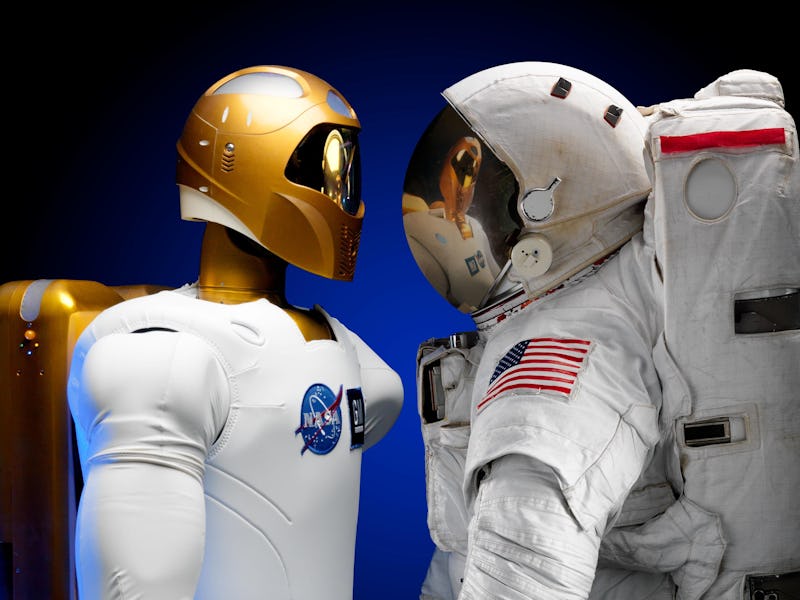NASA Administrator Charles Bolden's Plan to Save Earth by Leaving for Mars
The new vision for space travel isn't just about space.

On Wednesday morning, the Center for American Progress, a progressive public policy think tank, hosted NASA administrator Charles Bolden for a speech and short Q&A on the space agency’s future plans. High on the list, of course, is Mars exploration, but Bolden went out of his way to emphasize that there NASA has other interests, including climate change mitigation and innovations in robotics.
Bolden began his speech by emphasizing the shift in perspective that has fueled NASA’s latest string of big discoveries and larger plans for space exploration. He referenced the Greek fable of the astrologer Thales, who fell into a well while gazing at the stars. Bolden thinks the old approach to space exploration was a lot like this, where scientists would seem to get lost while investigating outer space and forget about what was happening around them on Earth.
According to Bolden, Obama and NASA laid out a bifurcated plan:
Part 1: Use the James Webb Space Telescope, which will be launched in 2018, to study Earth’s changing atmosphere and geology while looking for applicable automation technologies.
Part 2: Make interplanetary travel viable by constructing the Space Launch System, our planet’s most powerful rocket, developing the Orion spacecraft to send humans into deep space, and finishing the Mars 2020 Rover, which will help collect a samples of Martian rock for study back home.
One of the parts of NASA’s Mars plan that tends to fly under the radar for most people is the space agency’s plan to use the moon as a proving grounds for bigger Mars missions. Besides the asteroid redirect mission, Bolden emphasized that NASA expects to be back in cis-lunar sometime in the 2020s, with both robots and humans working to equip us with better technologies and lessons for long-term space travel that will prepare us for getting to Mars in the 2030s.
Bolden also talked about what a great opportunity space exploration is for engendering good international relations, saying he considered the International Space Station a symbol of worldwide cooperation “which I believe ought to be considered for the Nobel Peace Prize.” He cited collaborative research with China in geodetics and glacial characterization in the Himalayas, research with Africa in earth science studies, and a broadening of the U.S.-India dialogue that allows both countries to share knowledge useful for each other’s space missions. He cautioned, however, that these things don’t happen “unless [the US] steps forward and takes the leadership.”
NASA has a lot on its plate for the next few decades, and the rise in other countries’ space agencies and private spaceflight companies means it may be able to share the load and prevent getting overwhelmed. But, overall, Bolden is optimistic about NASA’s future. The guy was talking about meaningful job creation, which means the scale of his agency’s endeavors is only growing.